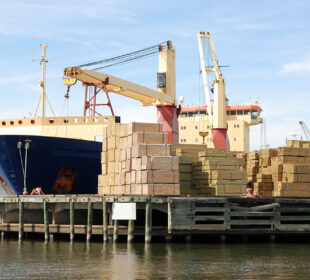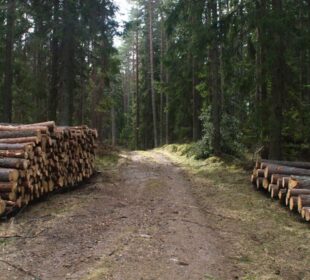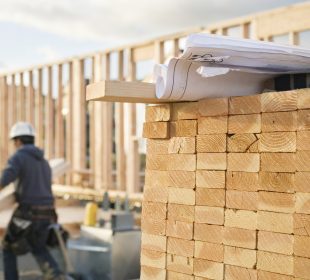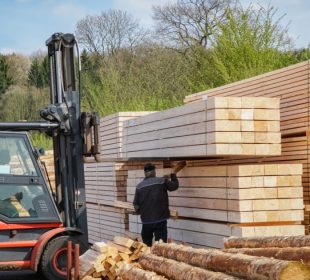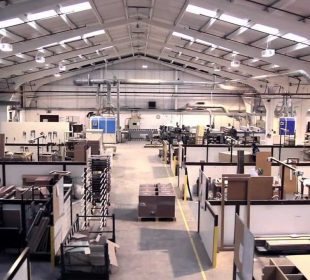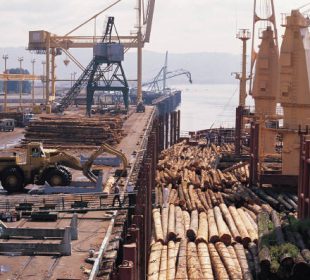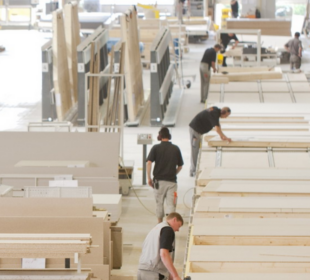Berlin wants to become timber construction center: DeSH welcomes decision in the House of Representatives
On March 21, 2019, members of the Berlin State Parliament unanimously supported the promotion of urban timber construction. The German sawmill and timber industry federation registered association (DeSH) sees itself confirmed in its commitment and will actively contribute to the development of a planned timber construction cluster.
The building sector is responsible for 30 percent of the total greenhouse gas emissions in Germany and thus represents a decisive set point in the fight against climate change. After Baden-Württemberg, the state of Berlin decided with the application "Sustainability on the building: Berlin builds with wood", As part of the Berlin Energy and Climate Protection Program (BEK), wood as a construction material will henceforth be used to a much greater extent and will contribute to climate protection and resource efficiency as a carbon dioxide storage system.
Key to climate protection and housing
DeSH General Manager Lars Schmidt expressly welcomes the signal from the capital: "Climate protection and housing are the central tasks of the future in our country." Building with wood can be the key to both. " Germany currently lacks one million apartments. A recent study by the Technical University of Darmstadt and the Pestel Institute, one of whose initiators included the DeSH, shows that the problem could be solved by increasing and re-compacting. "Wood offers outstanding technical, resource-efficient and climate-friendly solutions both in existing buildings and in new buildings, so wood can quickly create high-quality living space," explains Schmidt. This is attested in Berlin already realized multi-storey wooden buildings.
Berlin is to become a timber construction center
As the largest builder of the city-state, the Berlin Senate should lead the way in the future and increasingly use wood in state-owned buildings such as schools, kindergartens and residential buildings. Support programs, such as those in Baden-Württemberg, Hamburg and Munich, should also create incentives for private developers. In order to concentrate know-how on the ground, MEPs demand more support for forestry, craft, industry and science in the Berlin-Brandenburg area. The decision was also an appeal to woodworking companies to build additional sites and production capacity in the region. A timber construction cluster should develop and bundle the competencies along the value chain over the long term.
Wood industry already active in the capital
"The initiatives in Berlin and Baden-Württemberg show the right path," says Schmidt. Without the use of the renewable raw material wood, the climate goals of the federal and state governments can not be achieved. By using wood, CO2 emissions in the construction industry alone could be cut by 31 million tonnes a year. "Building with wood means active climate protection that every client can do, and we're happy to continue to support Berlin's policy in spreading this message and developing a cluster," said Schmidt. The exhibition "Building with Timber - Paths to the Future" initiated by the DeSH, which was shown in the Martin-Gropius-Bau in 2016/2017, as well as the newly established timber construction network Berlin, make it clear that
Law could anchor use of wood nationwide
The DeSH hopes after the impetus in the countries to impulse effect: still unscheduled building regulations and Bauplanungsrichtliche specifications inhibit the timber industry in some regions. By modern fire protection concepts, however, the construction and operation of wooden buildings is unproblematic. The Berlin building code was adjusted accordingly in the spring of 2018. The association now considers it necessary to anchor the use of renewable raw materials in state building projects nationwide in the planned Building Energy Act (GEG). "In the face of the alarming World Climate Report 2018, the federal government and some countries are now asked to tackle the necessary changes in the building sector consistently," concludes Schmidt



